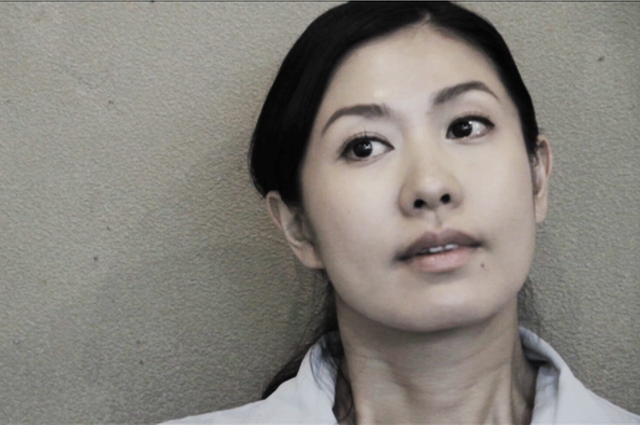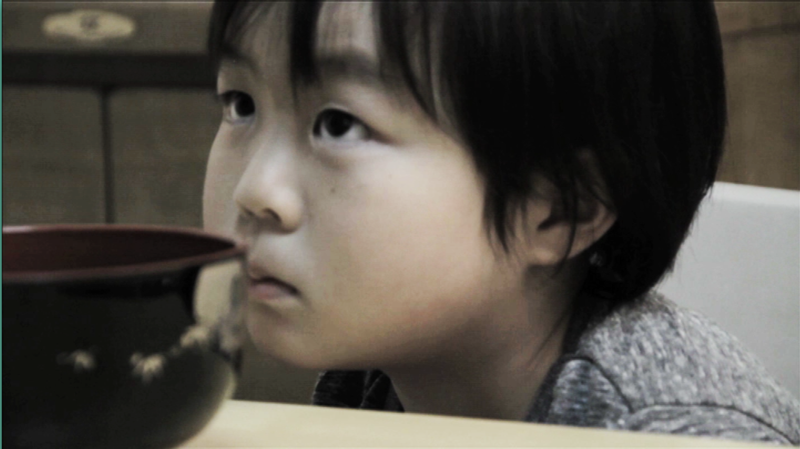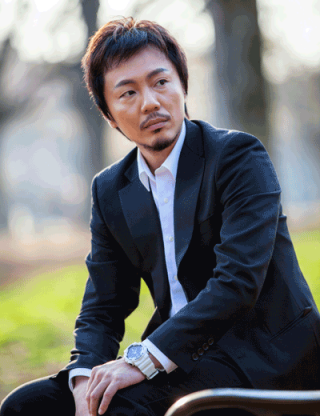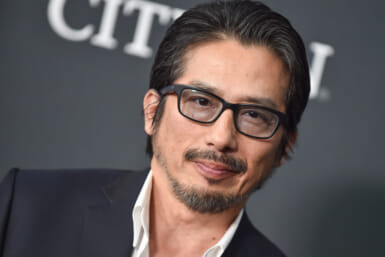Making a movie in a country where you don’t speak the language is tough, but some people enjoy a challenge and Thomas Lim is no exception. Having worked in the film industry for a number of years as actor, writer, director and producer, he has a firm grasp of how to make a movie and he has quickly adapted these skills for Japan. He moved to Tokyo with his wife and is currently working on a film called Mari, which tells the story of a single mother in Japan.
By Mike Sullivan
In the past Thomas was a backpacker traveling through country after country, which no doubt accounts for his ability to live wherever he wants, but now he is passionate about making great stories for the big screen.
Thomas is friends with, and also works with, actress Keiko Suzuki and together they sat down to discuss ideas that could harness their individual strengths: Thomas as a foreign director interested in social issues and Keiko as a lead actress using her wide experience and abilities. They settled on the theme of poverty and shortly afterwards discovered something quite shocking about Japan.
“People don’t usually associate Japan with being poor. Upon further research, we learned that two groups of people fell under the country’s poverty line in Japan: the net cafe dwellers, and single mothers. I was shocked to discover that there are more than 1 million single mothers in Japan, and even thought it was a typo.”
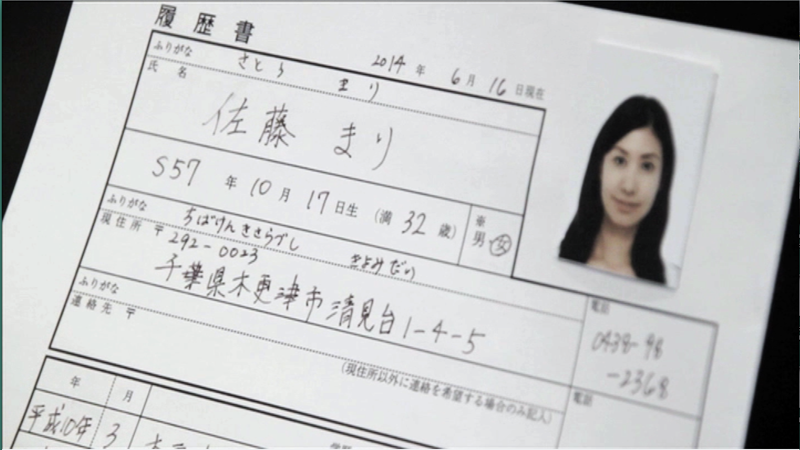
The fictional character Mari, portrayed by Keiko Suzuki, is one of Japan’s one million single mothers
One of Thomas’ acquaintances was in fact a single mother and after hearing about her experience of how much of a struggle it is to raise a child alone he found himself getting emotionally attached to this important issue. However, as a filmmaker he also had to think practically about how he could make a movie.
“I also thought Keiko would be perfect for the role as a single mom. Soon after I wrote the script, Keiko introduced to me our other important collaborator, Santa Nakamura. Santa is a director himself, but was open and generous enough to be the cinematographer for this project. The best part was, he loved the script too. So, add all that together and we have a strong core team, as well as all the reasons we need to make a film about a single mother in Japan named Mari. “
There aren’t really many movies about single mothers in Japan, though one notable film is Kotoko by Shinya Tsukamoto, and this is something that Thomas felt that proves that the topic of single mothers doesn’t receive the attention it deserves in Japan. While the story itself is about the single mother protagonist overcoming the struggle of providing for her son, Thomas also has another rather unusual plot point.
“Major help for Mari comes from the unlikeliest of sources – an illegal foreign worker [named] Ming Han. This touch of adding a foreigner into the main picture derives from my personal beliefs that when the skies come crashing down and all hope is lost, sometimes we get an important helping hand from the people completely unrelated to us. This was exactly what had happened to me so many times on my many travels in the past.”
The main actress, and also one of the co-producers of Mari, Keiko Suzuki, has worked in TV, film and radio, and could draw upon her wide experience for this role. Together with Thomas, they worked on the character of Mari and did a lot of research. However, one of the key aspects of the movie would be the relationship between Keiko and her young co-star, 3-year-old Kiyota Ogawa.
“Kiyota warmed up to Keiko right from the start, but because it was his first time acting, it took a while before he could get into character. Keiko was so patient in the process of helping young Kiyota in his role that by the time he was finally ready, they had already established an off-screen bond that truly resembled mother and child. This special connection they had off-screen was crucial, as I believe it successfully translated onscreen as two people who only had each other in their lives.”
Although Thomas has now lived in Japan for several years, he only speaks a little Japanese; one could imagine that this would be quite an obstacle in directing a Japanese production. It can be expected that there will be misunderstandings, such as a director who can’t get from the actors the exact performance that he or she wants. One can never forget the disastrous story of director Akira Kurosawa and his involvement in the US production of Tora! Tora! Tora!, which completely broke down due to a series of misunderstandings, cultural differences and attitudes. As a foreign director with a Japanese cast and crew, Thomas luckily had a very different experience.
“In many ways it was easier than my previous productions when everyone spoke the same language as I did. This experience has taught me that the spoken language is one thing, but when you are working with a team with a strong common focus, language isn’t really a big problem. I give a lot of credit to the cast and crew being Japanese for this. They were extremely focused, respectful, and patient throughout the whole process.”
As a foreigner living in Japan, Thomas has strong opinions about his experiences so far: on one hand there are many different aspects that he praises. Drawing upon his own background and the countries that he has lived in, he finds Japan to easily be the best in terms of food, service, medical care and more. In contrast to Japan’s image of being an expensive place to live, he thinks it is actually quite reasonable. He has a high opinion of Japanese people, whom he considers to be cultured and considerate. On the other hand there are some negative aspects which he reflected on.
“The culture does not encourage people to express themselves. Opinions are generally hidden and conversations are often indirect. A lot of what’s unsaid is expected to be understood, and a lot of rather strict cultural rules apply to just about any situation. That’s sometimes confusing for a foreigner like me who doesn’t speak much Japanese. Fortunately, a lot of my Japanese friends also speak English, so communication isn’t usually a problem.”
“I also believe that one can only be truly at ease if his/her character traits go along with what the locals value as being important. The Japanese appreciate people who are constantly challenging and pushing themselves (and the people around them) to venture out of their comfort zones, and I’m happy to say that I think that’s what the locals see in me here. Thus, I feel very valued, respected, and comfortable here in Japan.”
Prior to moving to Japan, Thomas made Roulette City, a film that tells the tale of an illegal foreigner worker in Macau trying to earn money through gambling, and falling in love with a local girl. Both films tackle social issues that are relatively invisible in most films from Asia, and both films draw heavily on Thomas’s experiences as a foreigner.
“I’ve been a foreigner for most of my adult life, and for countless times, have experienced the beauty of cross-cultural interactions first hand. I feel blessed to have had those experiences and I know only the lucky few would have ventured far and long enough to know of them. As such, I try to portray some of these experiences in my films. As a filmmaker, I always try to tell stories I know best about, and interactions between people of different backgrounds is one of them.”
Since October of last year, Thomas has been working on another film production in Japan called The Last Room. This will be a short horror film, which he plans to take to film festivals and work towards making a full-length feature version. He is hoping for this to be a US-Japan production, which will again star Keiko and will be shot in traditional Japanese locations; Thomas will both star and direct this movie. As for the future, he has big things in mind, along with Keiko and Santa as core collaborators, for 2015.

